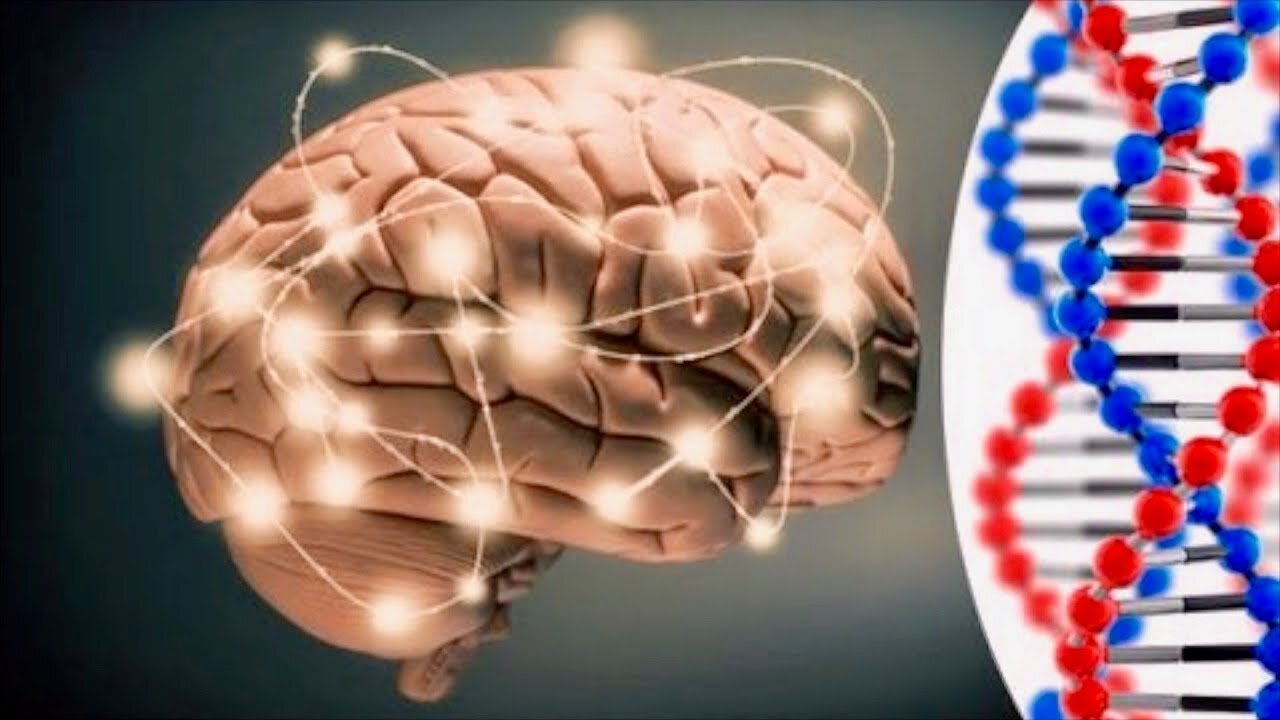Premium Only Content

Smart Genes - Scientists Discover Genes Linked To Human Intelligence
A team of European and American scientists announced that they had identified 52 genes linked to intelligence in nearly 80,000 people. These genes do not determine intelligence, however. Their combined influence is minuscule, the researchers said, suggesting that thousands more are likely to be involved and still await discovery. Just as important, intelligence is profoundly shaped by the environment. Still, the findings could make it possible to begin new experiments into the biological basis of reasoning and problem-solving, experts said. They could even help researchers determine which interventions would be most effective for children struggling to learn.
“This represents an enormous success,” said Paige Harden, a psychologist at the University of Texas, who was not involved in the study.
For over a century, psychologists have studied intelligence by asking people questions. Their exams have evolved into batteries of tests, each probing a different mental ability, such as verbal reasoning or memorization.
In a typical test, the tasks might include imagining an object rotating, picking out a shape to complete a figure, and then pressing a button as fast as possible whenever a particular type of word appears.
Each test-taker may get varying scores for different abilities. But over all, these scores tend to hang together — people who score low on one measure tend to score low on the others, and vice versa. Psychologists sometimes refer to this similarity as general intelligence.
It’s still not clear what in the brain accounts for intelligence. Neuroscientists have compared the brains of people with high and low test scores for clues, and they’ve found a few.
Brain size explains a small part of the variation, for example, although there are plenty of people with small brains who score higher than others with bigger brains.
Other studies hint that intelligence has something to do with how efficiently a brain can send signals from one region to another.
Danielle Posthuma, a geneticist at Vrije University Amsterdam and senior author of the new paper, first became interested in the study of intelligence in the 1990s. “I’ve always been intrigued by how it works,” she said. “Is it a matter of connections in the brain, or neurotransmitters that aren’t sufficient?”
Dr. Posthuma wanted to find the genes that influence intelligence. She started by studying identical twins who share the same DNA. Identical twins tended to have more similar intelligence test scores than fraternal twins, she and her colleagues found.
Hundreds of other studies have come to the same conclusion, showing a clear genetic influence on intelligence. But that doesn’t mean that intelligence is determined by genes alone.
Our environment exerts its own effects, only some of which scientists understand well. Lead in drinking water, for instance, can drag down test scores. In places where food doesn’t contain iodine, giving supplements to children can raise scores.
Advances in DNA sequencing technology raised the possibility that researchers could find individual genes underlying differences in intelligence test scores. Some candidates were identified in small populations, but their effects did not reappear in studies on larger groups.
So scientists turned to what’s now called the genome-wide association study: They sequence bits of genetic material scattered across the DNA of many unrelated people, then look to see whether people who share a particular condition — say, a high intelligence test score — also share the same genetic marker.
In 2014, Dr. Posthuma was part of a large-scale study of over 150,000 people that revealed 108 genes linked to schizophrenia. But she and her colleagues had less luck with intelligence, which has proved a hard nut to crack for a few reasons.
Standard intelligence tests can take a long time to complete, making it hard to gather results on huge numbers of people. Scientists can try combining smaller studies, but they often have to merge different tests together, potentially masking the effects of genes.
As a result, the first generation of genome-wide association studies on intelligence failed to find any genes. Later studies managed to turn up promising results, but when researchers turned to other groups of people, the effect of the genes again disappeared.
But in the past couple of years, larger studies relying on new statistical methods finally have produced compelling evidence that particular genes really are involved in shaping human intelligence.
Music: The Inventor by Dhruva Aliman
Amazon - https://amzn.to/3eyYxeD
https://music.apple.com/us/artist/dhruva-aliman/363563637
https://dhruvaaliman.bandcamp.com/album/king-neptunes-travelling-merchants-and-their-adventures-in-and-beyond-the-sea
http://www.dhruvaaliman.com/
Spotify - https://open.spotify.com/artist/5XiFCr9iBKE6Cupltgnlet
-
 UPCOMING
UPCOMING
Josh Pate's College Football Show
4 hours agoCFP Reaction Special | Early Quarterfinal Thoughts | Transfer Portal Intel | Fixing The Playoff
62 -
 23:55
23:55
CartierFamily
2 days agoElon & Vivek TRIGGER Congress as DOGE SHUTS DOWN Government
46.1K64 -
 5:43:44
5:43:44
Scammer Payback
2 days agoCalling Scammers Live
136K20 -
 18:38
18:38
VSiNLive
2 days agoProfessional Gambler Steve Fezzik LOVES this UNDERVALUED Point Spread!
99.8K17 -
 LIVE
LIVE
Right Side Broadcasting Network
10 days agoLIVE REPLAY: President Donald J. Trump Keynotes TPUSA’s AmFest 2024 Conference - 12/22/24
4,958 watching -
 4:31
4:31
CoachTY
22 hours ago $24.08 earnedCOINBASE AND DESCI !!!!
130K10 -
 10:02
10:02
MichaelBisping
21 hours agoBISPING: "Was FURY ROBBED?!" | Oleksandr Usyk vs Tyson Fury 2 INSTANT REACTION
67K13 -
 8:08
8:08
Guns & Gadgets 2nd Amendment News
2 days ago16 States Join Forces To Sue Firearm Manufacturers Out of Business - 1st Target = GLOCK
97.5K86 -
 10:17
10:17
Dermatologist Dr. Dustin Portela
2 days ago $17.70 earnedOlay Cleansing Melts: Dermatologist's Honest Review
137K14 -
 1:02:20
1:02:20
Trumpet Daily
2 days ago $42.82 earnedObama’s Fake World Comes Crashing Down - Trumpet Daily | Dec. 20, 2024
94.9K59